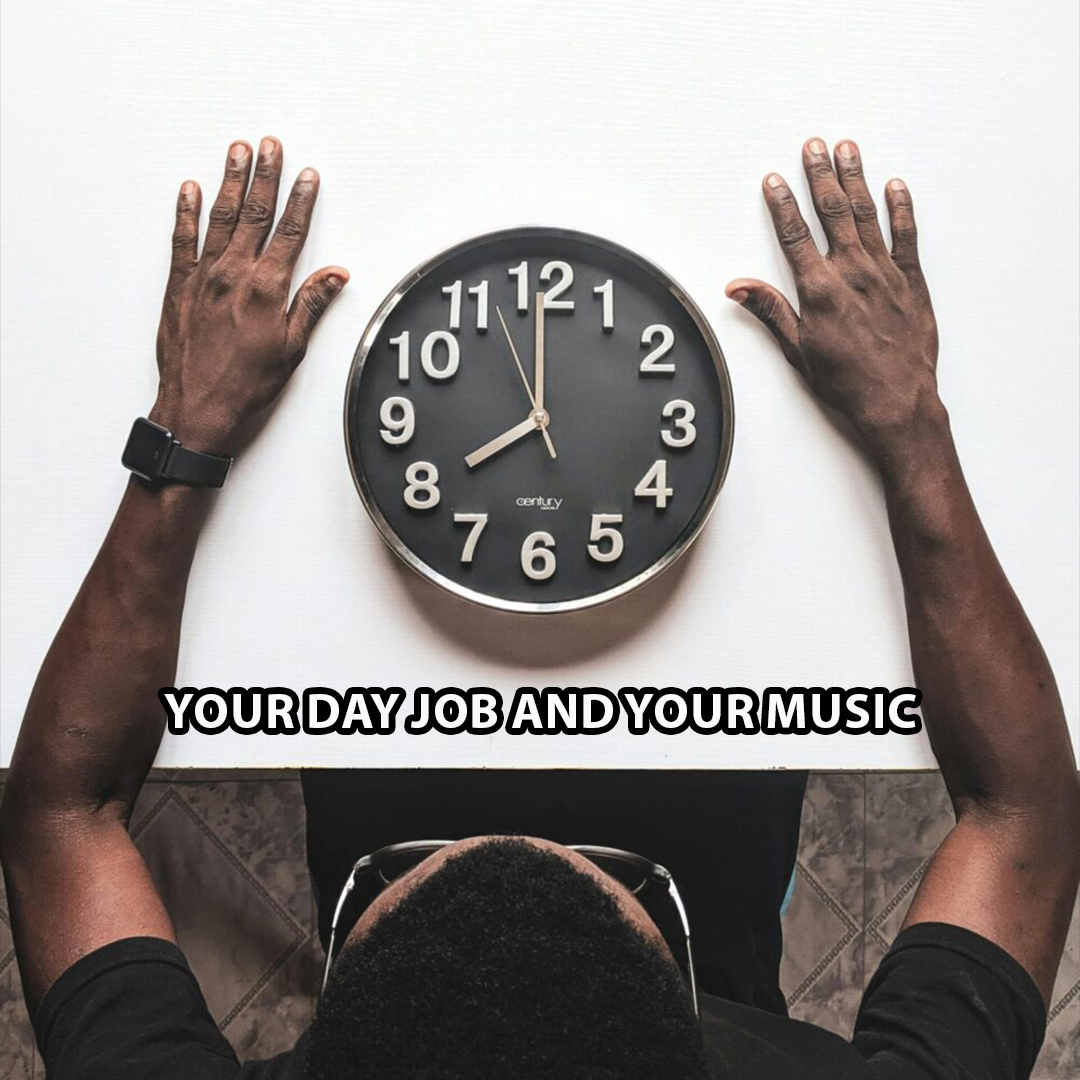For many aspiring musicians, the journey to full-time artistry isn’t an overnight success story. Instead, it often involves the delicate balancing act of pursuing a music career while maintaining a traditional day job. Whether you’re working to pay the bills, gain stability, or pursue a parallel passion, managing both careers can be challenging yet rewarding. Here’s how to find balance and maintain momentum in both your professional life and your music.
1. Time Management is Key
Balancing two careers requires excellent time management. You’ll need to plan ahead to ensure you’re dedicating enough time to both your job and your music. A solid schedule is your best friend. Consider breaking your day into chunks of time dedicated to each career. For example, you could focus on your day job during working hours and allocate specific evenings or weekends for songwriting, rehearsals, or studio sessions.
 Use tools like Google Calendar, Trello, or EngineEars to keep track of project deadlines and accounting. By planning ahead, you’ll reduce stress and avoid feeling like you’re neglecting one career in favor of the other.
Use tools like Google Calendar, Trello, or EngineEars to keep track of project deadlines and accounting. By planning ahead, you’ll reduce stress and avoid feeling like you’re neglecting one career in favor of the other.
2. Set Clear Priorities and Goals
While it may feel like you’re juggling two full-time careers, understanding your priorities will help you focus on what matters most. Is your goal to eventually transition into a full-time music career? If so, set specific goals for your music, such as recording an EP, booking regular gigs, or increasing your social media presence. Simultaneously, establish clear objectives in your day job to avoid burnout and stay on top of responsibilities.
Identifying the long-term goals for both your job and your music will help you make smart decisions about where to invest your time and energy.
3. Maximize Downtime
When you’re balancing two careers, finding extra time in your schedule can feel impossible. However, small pockets of downtime throughout your day can be put to good use. Use your commute, lunch breaks, or quiet evenings to brainstorm ideas, listen to music for inspiration, or draft social media content. Even answering emails or promoting your music online can be done in short bursts, ensuring you keep the momentum going in your music career even when you’re pressed for time.
4. Communicate with Your Employer
If you’re serious about your music career, it can be helpful to have an open conversation with your employer about your aspirations. While you don’t need to share every detail, letting them know you have outside creative pursuits can foster understanding when it comes to time-off requests or flexibility.
Some employers may even be supportive of your musical ambitions, allowing for flexible hours or remote work if it fits within your job role. Keeping communication open ensures you don’t compromise your job performance while still allowing room for your music career to flourish.
5. Avoid Burnout
The pressure of managing two careers can lead to burnout if you’re not careful. To avoid this, remember to schedule time for rest and self-care. Incorporate activities that recharge you, whether that’s exercise, meditation, or spending time with friends and family. Avoid overextending yourself with back-to-back gigs, long work hours, or unrealistic deadlines.

Balancing two careers means you’ll need to listen to your body and mind, ensuring you’re taking time to recover, so you can continue performing at your best in both fields.
6. Leverage Your Day Job for Your Music Career
Your day job might provide more opportunities for your music career than you think. Whether it’s networking, developing skills, or saving money to invest in your music, use your current position to further your artistic goals. For example, if you work in marketing or communications, those skills can help you promote your music. Similarly, financial stability from your job can help fund studio sessions, music videos, or tours.
Look for ways to turn your day job into an asset, rather than seeing it as something that holds you back from your musical ambitions.
7. Stay Organized and Flexible
Flexibility is crucial when balancing two careers. Sometimes, an unexpected opportunity may arise in your music career—a last-minute gig or an impromptu collaboration. Stay organized with your day job responsibilities to give yourself the flexibility to take advantage of these moments. Likewise, be adaptable with your music schedule. Not every week will go as planned, but if you keep an open mindset, you can navigate the unpredictability of both careers more smoothly.
8. Celebrate Small Wins
It’s easy to get caught up in the bigger picture, but don’t forget to celebrate the small wins along the way. Whether it’s landing a new client at work, completing a new track, or gaining new fans, take a moment to appreciate the progress you’re making in both areas of your life. These small victories help maintain your motivation and remind you that you’re on the right path.
9. Build a Support System
Balancing two careers is no easy feat, and having a strong support system can make all the difference. Surround yourself with people who believe in your music and understand your goals. Whether it’s friends, family, or fellow musicians, having a support system can help you stay grounded and focused when things get overwhelming.
10. Hire A Professional
As an artist, your time is one of your most valuable resources. With so many demands on your schedule—from creating new music to engaging with fans and managing day-to-day logistics—it’s essential to know when to delegate. Hiring a professional to handle specific tasks can be a game-changer, freeing up precious hours and allowing you to focus on the areas where you truly shine.
Taking on everything alone can quickly become overwhelming, leaving you stretched thin and prone to burnout. Whether it’s bringing in a manager to help with booking, a videographer, graphics artist, or an experienced engineer to polish your sound, outsourcing can streamline your workload and elevate your artistry. This approach doesn’t just save time; it lets you channel your energy into your music and career growth, ultimately driving you toward your goals more effectively.
Final Thoughts
Pursuing a music career while maintaining a full-time job may be challenging, but it’s far from impossible. With clear goals, effective time management, and a proactive approach to self-care, you can create a sustainable balance between your job and your passion for music. Whether you’re working towards transitioning into a full-time music career or simply enjoying the best of both worlds, remember that every step forward is progress.
